What's the right thing to do?
The core problem of ethics.
Utilitarianism(功利主义)
Main Idea: Doing whatever will result in the greatest happiness of the greatest number.
Or just say it: maximise happiness and minimise pain.
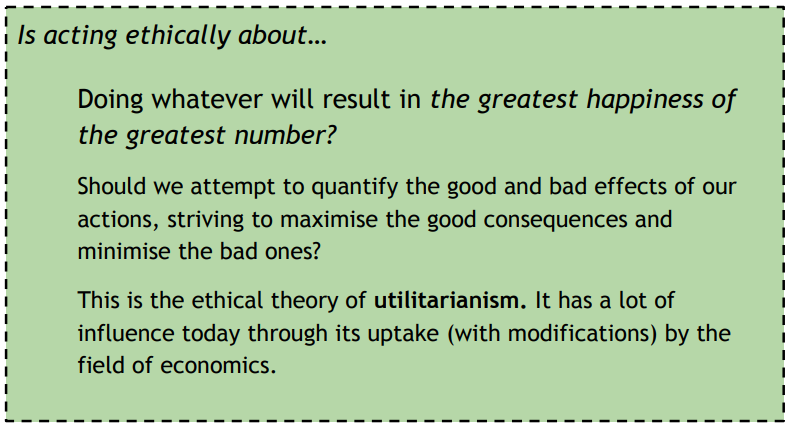
Deontology(义务主义)
Main Idea: Following the rules of a morally upstanding life, don't lie/steal, respect other people's autonomy, etc.
the Golden Rule: treat others as you'd want them to treat you.
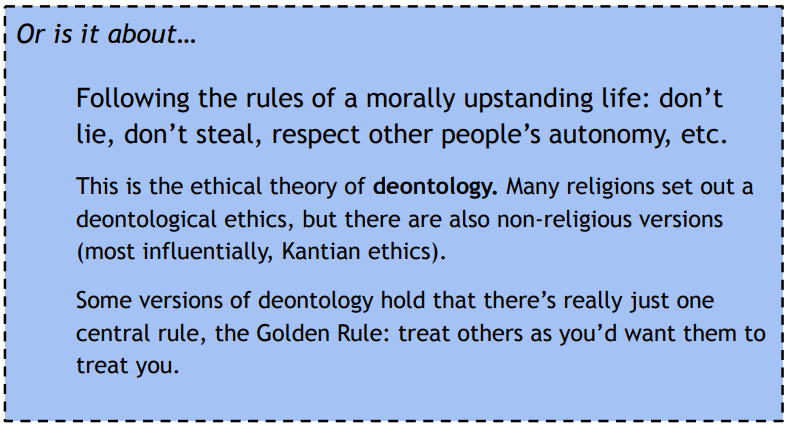
Virtue Ethics(美德伦理)
Main Idea: Striving for a well-rounded, moderate character: being kind but not too self-sacrificial; being courageous but not reckless; being honest but also knowing when to keep an opinion to yourself.
Representatives: Aristotle, Confucius
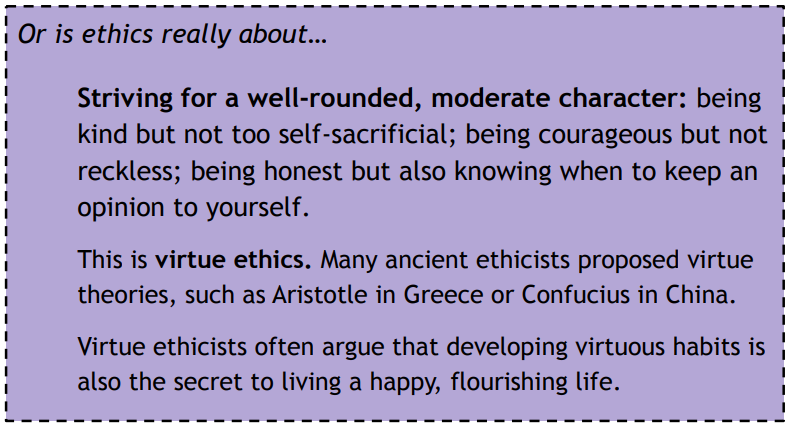
Egoism(利己主义)
Main Idea: Do what’s best for ourselves and not worry about anyone else.
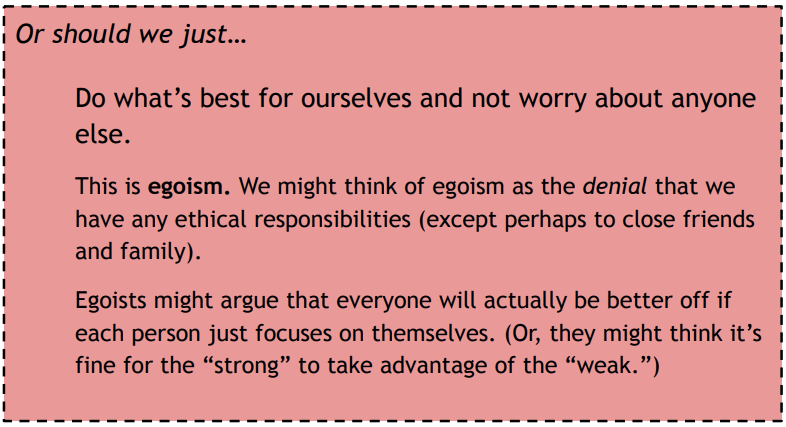
Comparison: Barristers (a type of lawyer in AUS)
Objectives?
“barristers owe their paramount(首要的) duty to the administration of justice.”
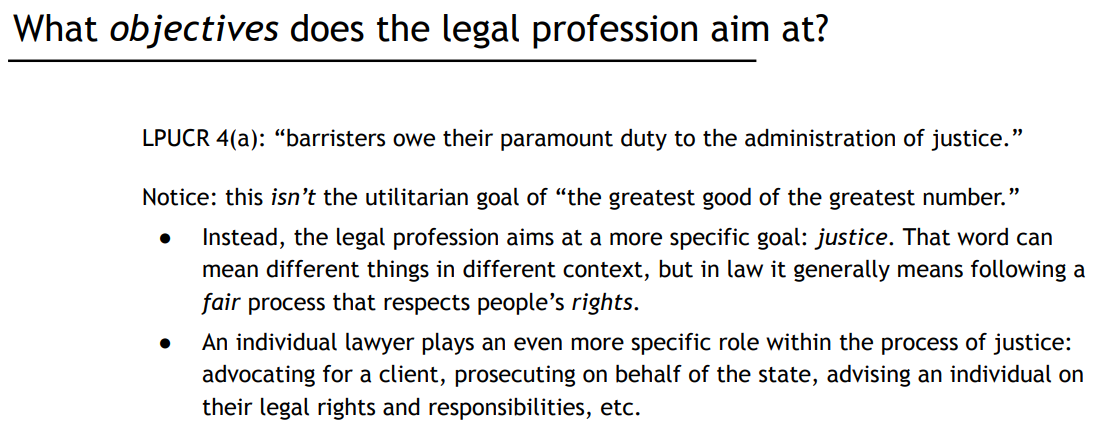
Rules?
A barrister should protect the client's best interest, but this does not happen in normal life, 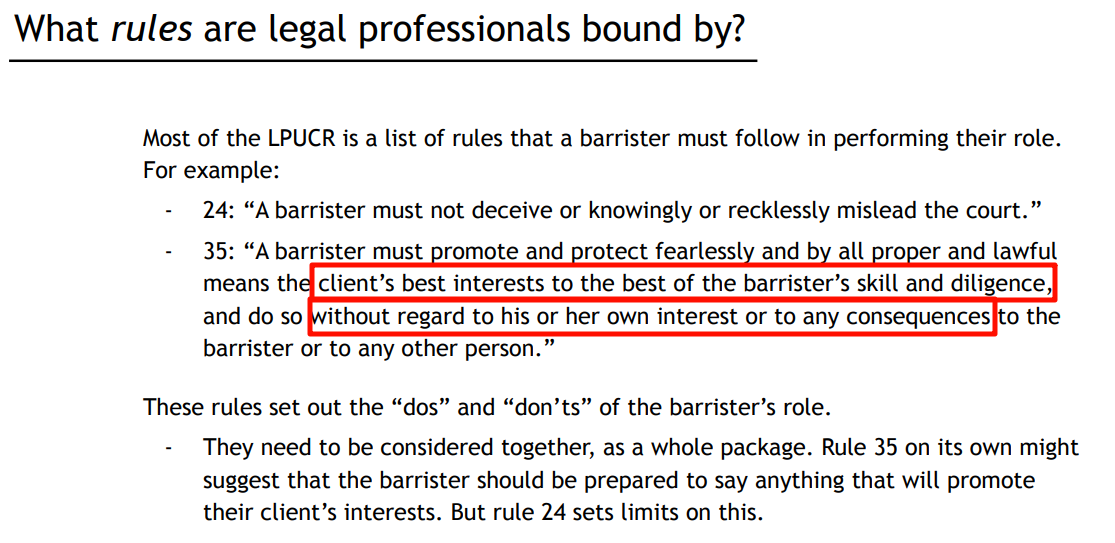
Virtues?
"Finding a middle ground".
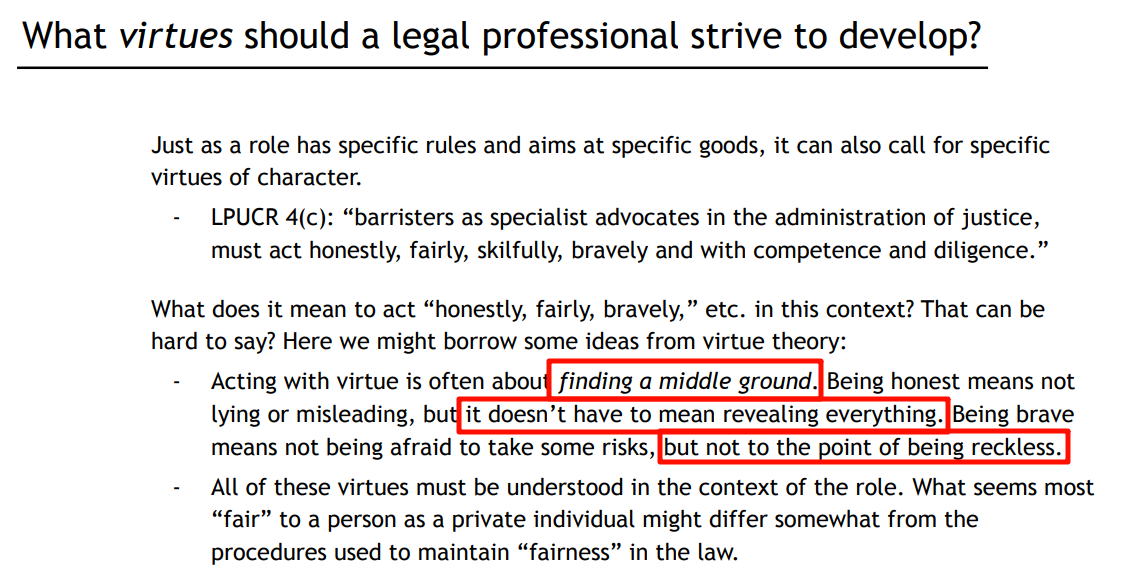
No need to be an angel!
It doesn’t really matter what the “right” ethical view is (egoism, utilitarianism, etc.).
What matters is understanding how your role sets limits on how you may pursue your own idea of what’s right.
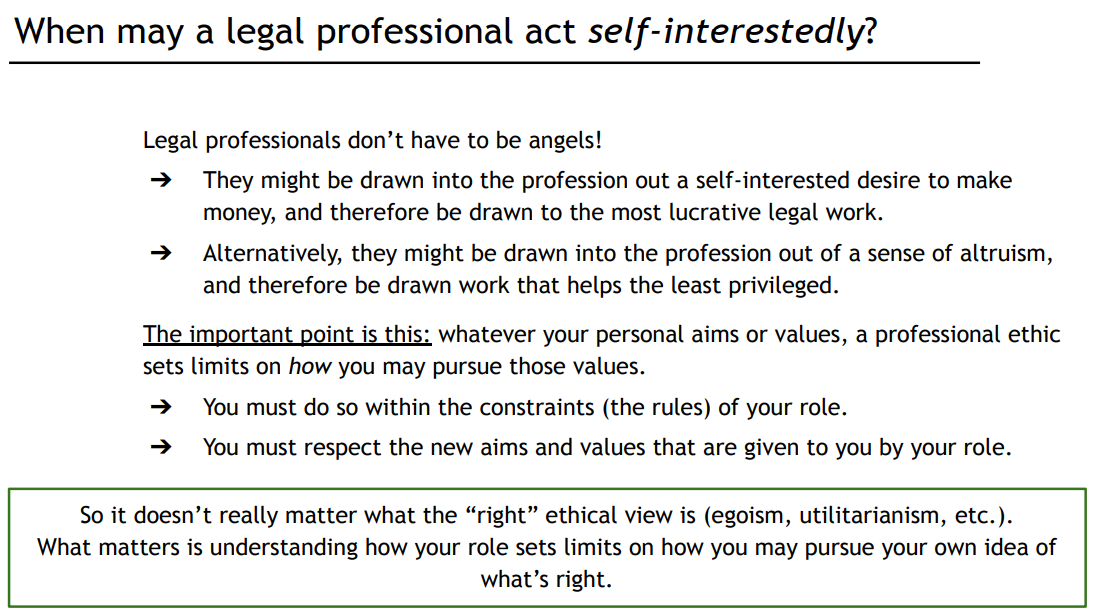
Metaphor: filter
Ehtics that should be parked at the door.
Ehtics that added by the role.
Ehtics that can be brought straightly from personal life to professional life.
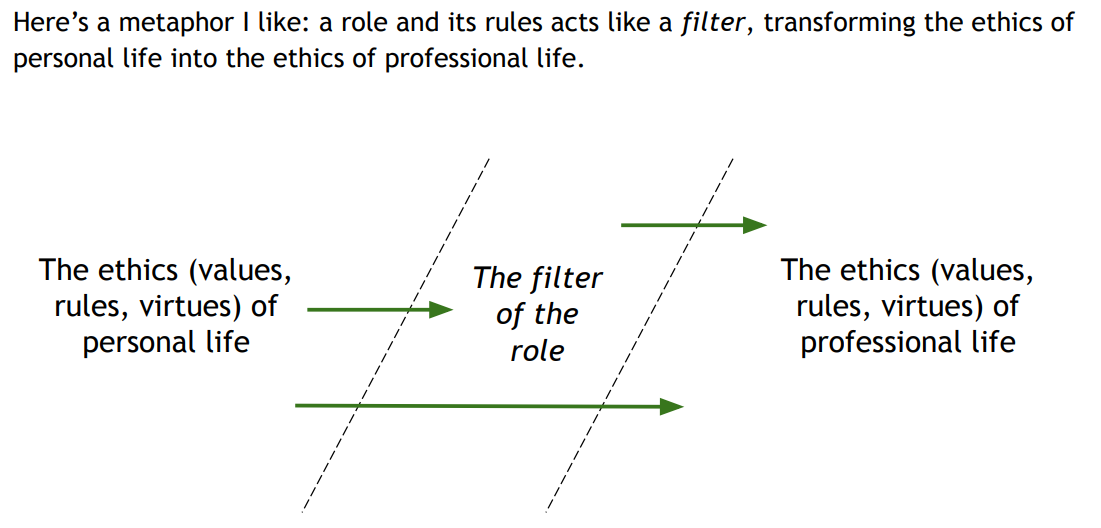
ACS Code of Professional Ethics
"ICT professionals are expected to practise the core values of honesty, trustworthiness, respect for others, and respect for
the profession in alignment with their ICT-based role, context and capabiliIes."
My understanding of the filters are as followed.
Honesty
Filtered:
"Not remain silent when you detect unprofessional conduct." In daily life, we may just ignore these things.
Added:
Be honest, open and truthful in all interacIons with employers, employees, clients, stakeholders, and the
public. (No need to do that in personal life.)
Straight:
Not misrepresent any action, situation or capability - of yours, your colleagues, your employer, or others with
whom you interact, whether directly, indirectly or by omission.
Trustworthiness
Filtered:
"Respect the privacy, confidenIality and integrity of any personal or proprietary informaIon that comes into
your possession, including data relating to individuals or other stakeholders."
"Not undertake work for which you do not have the necessary skills and knowledge."
Added:
Be proactive in developing life-long learning pracIces to stay current with changes to ICT knowledge, skills
and professional standards that may impact your ability to perform your role and responsibiliIes in a
trustworthy manner.
Communicate your own capabiliIes clearly when accepting, performing and delivering work, including
potential learning and growth gaps that may need to be addressed.
Develop systems which are robust, secure and user-friendly.
Straight:
Be accountable for all you undertake. Be prepared to take responsibility for failures as well as successes. Do
what you say you are going to do; accept construcIve criIcism.
Practise integrity. Be consistent in your views, words and actions. Declare and manage any conflicts of
interest. Do not allow the undue influence of others or bias to prevent you complying with this Code.
Be competent in all that you attempt to undertake. Strive for quality and highlight resource constraints which
may affect outcomes.
Respect for Others
Filtered:
Added:
Minimise harm to any stakeholders from your professional activities. For unavoidable harm, develop mitigation strategies.
Model and encourage inclusivity in all your work.
Support and contribute to a healthy workplace, that is respectful and supportive of others.
Identify and mitigate any risks to others associated with your work.
Straight:
Be respectful of the views and opinions of others. Respect their differences and take into account others' points of view.
Be impartial and fair and do not discriminate unfairly against people in interpersonal interacIons or in the design and function of systems.
Respect others’ intellectual property.
Respect for the Profession
Filtered:
Added:
Endeavour to educate the public about the benefits and drawbacks of ICT systems, and how to make considered choices about ICT system.
Contribute to the public discourse on ICT matters affecting the dignity and wellbeing of people and communities within the scope of your ICT role and capabiliIes.
Seek to enhance, in the professional choices you make, the environmental sustainability of ICT systems and the overall quality of life of those affected by them. Ensure that the public interest is defended.
Encourage and support advancing the ICT knowledge and competence of others in the Profession.
Contribute to advancing ICT capabiliIes and systems for the greater good.
Acknowledge and parIcipate in addressing ICT industry challenges.
Support the ongoing development of an open, diverse, and inclusive ICT industry.
Leverage collecIve ICT knowledge and advance the standing and respect afforded to the ICT Profession and the ACS in represenIng ICT professionals.
Straight:
